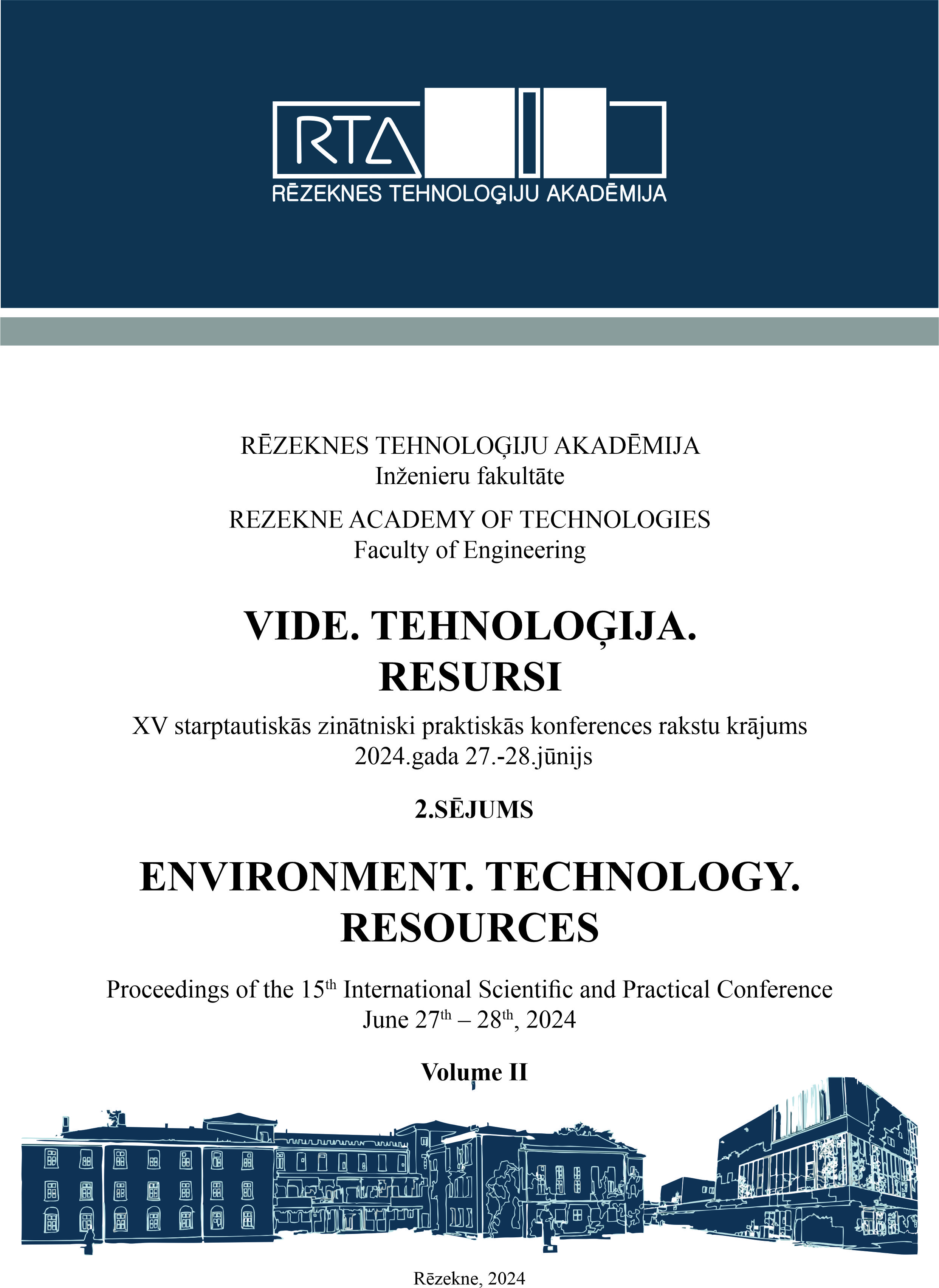ALGORITHM FOR IMPLEMENTING QUEST TECHNOLOGIES IN RESEARCH WORK WITH PRESCHOOL AND PRIMARY SCHOOL CHILDREN
DOI:
https://doi.org/10.17770/etr2024vol2.8089Keywords:
higher education, preschool education, primary education quest, teacher training, WebQuestAbstract
The origin of the definition "quest" and the use of quest technologies in traditional education have been well theoretically analysed and substantiated. In particular, a quest could be a type of collective creative work, scientific/educational competitions or excursions in the traditional form of organising educational activities. However, with the transition to digital education, the implementation of quest technology has changed. It continues to be seen as a motivational tool for learning, a creative form of work in the educational programme. But, according to our observations, this type of work is declining in the online format. We will discuss the reasons for this and options for replacing quest technologies in this description.
It is worth noting that in order to achieve the goal of our study, we turned to the basic requirements for organising a Web Quest, recommendations for its design, convenience according to the age category of children, clarity of instructions, etc. The next step was to compare online education technologies that had similar characteristics to the quest (computer games, educational applications and platforms, RPGs, video quests, VR audiences, etc.) This allowed us to draw a conclusion about their common roots and concepts, as well as to understand the reasons for the decline in scientific interest in the topic of the quest itself.
After analysing the available open access publications, we concluded that this is not enough to understand the reasons for the decline in interest in this form of online work. After all, street quests are still popular. That is why we interviewed students specialising in preschool and primary education who had the opportunity to create Web Quests and participated in them. The feedback from future specialists on the implementation of quest technology in online and offline formats directed us to describe the reasons for refusing this technology in the online format of the educational process and allowed us to confirm the list of possible substitutions for quests for the research activities of preschool and primary school students suggested above.
References
T. Trofimuk-Kyrylova, A. Karpiuk, , & S. Chybyrak. 2022. Zastosuvannia kvest-tekhnolohii u pidhotovtsi zdobuvachiv vyshchoi osvity (z dosvidu Volynskoho natsionalnoho universytetu imeni Lesi Ukrainky). HUMANITARNI STUDII: Istoriia ta Pedahohika, (1), 140-154.
M. V. Martín, & J. Quintana. 2011. Las webquests en el ámbito universitario español. Digital Education Review, 2011, num. 19, p. 36-55.
S. M. Şahin, & M. H. Baturay. 2016. The effect of 5E-learning model supported with WebQuest media on students’ achievement and satisfaction. E-learning and Digital Media, 13(3-4), 158-175.
Al-Shamisi, A. S. (2016). The effect of WebQuests on grade 11 reading comprehension and student perceptions of WebQuests. American International Journal of Contemporary Research, 6(1), 132-143.
A. L. A. B. A. Sofowora OLANIYI, A. S. Ayobami, & O. Adedoja Gloria. 2013. Perceived Benefits and Attitude of Student Teachers to Web-Quest As a MOtivational, Creative and Inquiry-Based Learning Tool in Education. In EdMedia+ Innovate Learning (pp. 2186-2193). Association for the Advancement of Computing in Education (AACE).
J. Kulbida, & B. Maguire. 2013. Print quest: a learning adventure. Learning & Teaching with Media & Technology, 474.
Y. Soepriyantoa, I. N. S. Degengb, P. Setyosaric, & S. Ulfad. 2019. The Effect of Using WebQuest for Lower Order Thinking Skills. International Journal of Innovation, Creativity and Change, 5(4), 552-563.
P. B. Seitkazy, R. K. Toleubekova, A. K. Amanova, A. A. Tashetov, G. Iskakova, & S. S. Demissenova. 2016. A Web-Quest as a teaching and learning tool. International Electronic Journal of Mathematics Education, 11(10), 3537-3549.
WEB-Quest. The second stage. General questions.. https://docs.google.com/forms/d/1Ycrlz_XKxL6zatdegM1fWH3r3-J1UY214tWxzLT4_t8/viewanalytics
Web-quest. The third stage. A difficult level. https://docs.google.com/forms/d/1sW4ZectuSJQQv85tkFzXgJavFMxGtqANmO8nKeCRrV8/viewanalytics
Educational Hackathon - spring 2021 https://sites.google.com/vspu.edu.ua/web-quest-spring-2021/%D0%B3%D0%BE%D0%BB%D0%BE%D0%B2%D0%BD%D0%B0-%D1%81%D1%82%D0%BE%D1%80%D1%96%D0%BD%D0%BA%D0%B0
A. Khilya Basic Principles of Using Virtual and Augmented Reality Technologies in the Process of Teacher Training in Ukraine. ENVIRONMENT. TECHNOLOGY. RESOURCES. Rezekne. 2023. Volume 2. 141-144. https://doi.org/10.17770/etr2023vol2.7268
Downloads
Published
Issue
Section
License
Copyright (c) 2024 Tetiana Vasiutina, Lіudmуla Ishchenko, Halyna Kit, Yulia Bondar, Anna Khilya

This work is licensed under a Creative Commons Attribution 4.0 International License.



